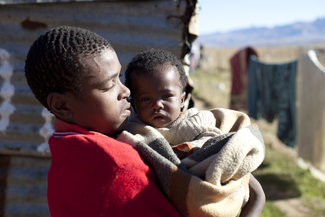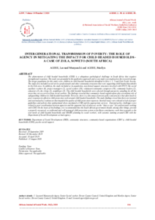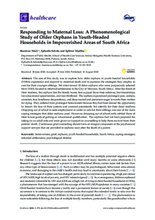

Displaying 121 - 130 of 575
This paper explores kinship and other networks of support for young mothers and their babies after an unintended, ex-nuptial pregnancy in a resource-poor urban setting.
This article explores the impacts of COVID-19 on children in Botswana, including an increase in the number of child sexual abuse cases, and highlights the need for a clear road map on the prevention and response of the child protection system in Botswana.
UNICEF is hiring a national technical expert to support the Government of Lesotho (GoL) commitment to fulfil its periodic reporting obligations as a signatory to the UNCRC and in the realization of children rights and ensuring full protection of children and their rights.
This paper reports the findings from a small qualitative study into child fosterage undertaken in Namibia in 2019.
This qualitative study, conducted in four child and youth care centres in the Tshwane region of South Africa, presents some techniques used by child and youth care workers to develop belonging.
This study explored child headed households (CHH) in South Africa.
The aim of this study was to explore how older orphans in youth-headed households (YHHs) experience and respond to maternal death and to examine the strategies they employ to care for their younger siblings.
This report outlines the peer research approach adopted by the Building Positive Futures project and summarises the findings of the pilot of the peer research methodology on leaving care in Africa.
This report is a short summary of the main findings from 'Building Positive Futures: A Cross-Country Pilot Study on Youth Transitions from Out-of-Home Care in Africa,' written for youth who participated and other interested young people.
Given the paucity of research on youth transitioning from alternative care (i.e. care-leaving or leaving care) in Africa, the study sought to develop and test a methodology for a cross-country, comparative study on leaving care in Africa.





